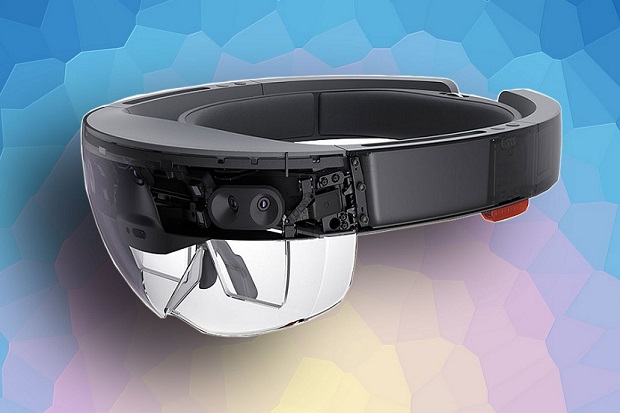
It’s only been 12 months since we last produced our annual emerging technology radar, but already there have been seismic business challenges emerging, and the very rapid evolution of transformative digital technologies.
Our latest emerging technology radar, now in its fifth year of publication, identifies the emerging digital and information technologies that have the greatest potential impact and provide the biggest opportunities for transforming Defra.
Last year we selected a range of Smart workplace technologies for the radar; technologies which would enable colleagues to work in a hybrid manner, in the office, at home or in the field. These technologies have continued to have a significant impact on our new work environment, and include monitoring the office environment, such as desk usage, communal space utilisation, room occupancy and CO2 levels.
We also predicted that visual collaboration tools would continue to grow market share. We are now seeing video conferencing vendors enter this market and embed solutions directly into their products.
Virtual Reality still has some way to go
The team has experimented with Holographic, Virtual Reality (VR) and Augmented Reality (AR) products and produced several explorations. Whilst the VR explorations, such as VR meeting solutions and VR flood modelling, were useful to explore the technology, we feel there is some way to go in the evolution of the VR products. Our explorations showed that the products are bulky and not suitable for prolonged use.
Our HoloLens exploration, with our colleagues at Thames Barrier, was highly successful. We explored using them for training and remote assistance, and this is now in the process of being moved into formal adoption.

In many ways the incredible pace of digital technologies has been driven by new global challenges, with the digital technology markets pivoting and adjusting to accelerate their offerings to meet critical demands and opportunities.
A radar created by Defra, for Defra
The Defra radar is unique in that it provides a specific view of emerging technology for our Defra group organisations. This differentiates it from all other externally available, generic, horizon-scanning, and emerging technologies research. It’s created by Defra, for Defra.
The process of producing this radar begins with the identification of Defra’s strategic objectives and key operational challenges and opportunities which can be summarised as “make our air purer, our water cleaner, our land greener and our food more sustainable”.
The radar is produced by exploiting AI tools to discover emerging technologies and their potential application within Defra. In collaboration with Defra colleagues, and with our key supplier network, we challenge and plot those emerging technology opportunities.
Our Top 20 for 2022
This year we have selected over twenty new emerging technologies into the radar. Hyper automation exploits multiple technologies, tools, and platforms to further automate processes. This is in support of the UK government’s clear ambition to create a leaner, more efficient, more innovative civil service, where digital automation technologies will be key.
While quantum computing is clearly progressing, it remains in the embryonic phase. However, the importance of quantum with regards to privacy has seen quantum communications enter the radar this year. We’re already seeing these technologies making rapid breakthroughs to ensure communications remain safe from prying eyes.

Looking after our people
Several of the technologies added this year reflect on employee wellbeing. Defra group was already a large and dispersed organisation before Covid 19. Moving beyond digital to virtual increased the need for both automation and social/collaborative tools. Intelligent induction and Learning Experience Platform technologies can support our onboarding processes, such as administration and engagement initiatives, and contribute to staff retention and morale.
Low Earth Orbit (LEO) satellites have been on the ‘emerging element’ of our radar for a while now. Our partners and us are now seeing the market mature, partly due to cost reductions of launching and managing the constellations.
While there remain limitations that are yet to be fully worked out, we feel the time is right to explore LEO and have several explorations in the 2022/23 pipeline.
This version of the emerging technology radar has identified and attempted to address some of those significant challenges we face in our organisation, domestically and globally. There will undoubtedly be some technologies that we’ve not considered, and probably others, that will have a bigger impact on Defra, and on wider society, than we can even imagine right now.
What we do know, for sure, is that technology innovation will absolutely support some of those harder global sustainability challenges that the whole world must address if we all want to make our air purer, water cleaner, land greener and our food more sustainable.
Jan Murdoch is a Lead Horizon Scanner in our Technology Innovation team.
Do you have innovative ideas on where else these technologies could be exploited across our organisation? Leave us a comment here or contact the team – we’d love to hear from you.
3 comments
Comment by S Sargison posted on
What are the emerging 20 technologies which you listed?
Comment by barryshaw posted on
Hi Sam, you can find them here - https://drive.google.com/file/d/1pnbNugujjreQiNThQ82hN-fd1ebupVre/view
Comment by Marcus M posted on
Great read - and I'm looking forward to seeing the results of your LEO explorations!